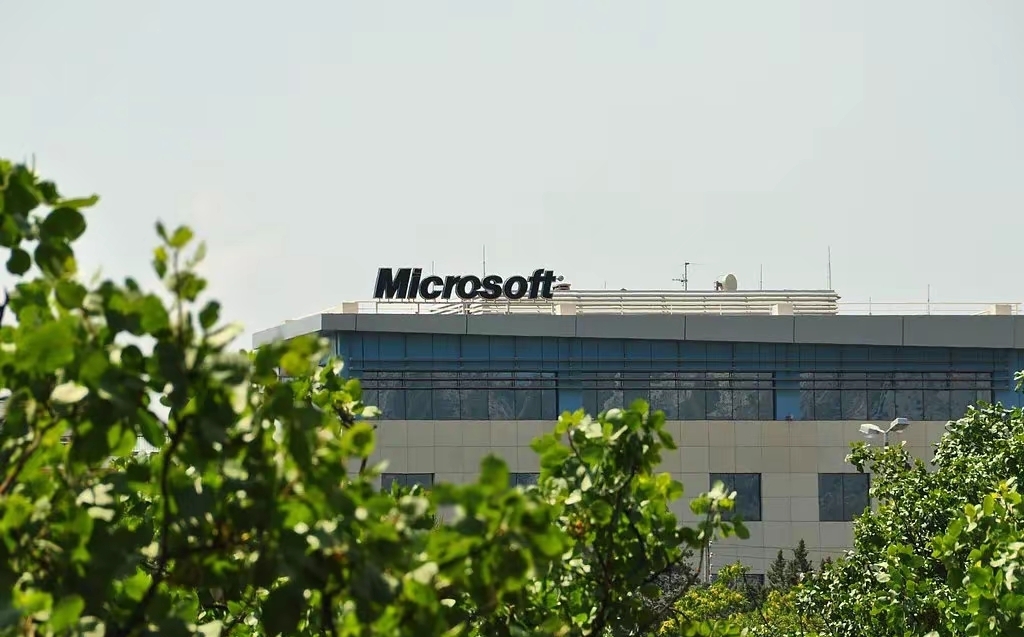
In the long process of technological development, Microsoft has been like an unshakable giant, once leading the way in the computer field with its Windows operating system and Office software, building a huge business empire. However, the tide of the times is rolling forward. With the rise of mobile Internet and the impact of cloud computing, big data and other emerging technologies, Microsoft's development path is gradually full of thorns. Faced with numerous challenges, Microsoft resolutely placed its bets on AI, hoping to achieve self rescue and revival. Can AI really help Microsoft return to its peak as it wishes?
Looking back at Microsoft's glorious past, the Windows 3.0 system emerged in 1990, equipped with Word, Excel, and PowerPoint office software, which established Microsoft's dominant position in the desktop operating system field, with a market share of about 75% at one point, and also established an unshakable competitive advantage in the desktop software field. However, in the era of mobile Internet, Microsoft missed the opportunity to develop due to its neglect of the control of the operating system. Apple's iOS and Google's Android have rapidly risen, dividing the mobile operating system market and significantly squeezing Microsoft's market share, resulting in a decline in market value.
To reverse its decline, Microsoft has undergone significant changes. In 2014, Satya Nadella took office and initiated a comprehensive strategic adjustment. Abandoning the "device and service" route, positioning Azure cloud services as the core growth engine, and weakening the Windows label; Implement a large-scale layoff plan, streamline business departments, and restructure the business with three major departments: "Intelligent Cloud", "Productivity and Business Processes", and "Personal Computing Business". This series of measures has shown initial results, and Microsoft is gradually recovering its vitality and regaining its presence in the technology field.
With the advent of the AI era, Microsoft once again keenly captures opportunities and unhesitatingly engages in them. Since 2019, Microsoft has been investing in OpenAI, investing a total of $13 billion three times to make Azure cloud services OpenAI's "exclusive" cloud computing service provider. After ChatGPT became popular, Microsoft's cloud computing revenue experienced explosive growth, which allowed Microsoft to taste the sweetness of AI and further strengthened its determination to deeply cultivate in the AI field.
In 2025, Microsoft plans to invest approximately $80 billion to build an artificial intelligence training center, with capital expenditures accounting for up to 95%, demonstrating its determination to invest in the AI field. At the Microsoft Build 2025 conference, more than 50 new products and services were released in one go, dedicated to building a "highway from models to intelligent agents" for developers; Launching an upgraded version of the memory AI assistant Copilot, which has multiple functions such as memory, action, and vision, attempting to occupy a place in the AI field.
However, Microsoft's journey towards AI has not been smooth sailing, with many challenges following closely behind. On the technical level, although Microsoft has invested heavily in the AI field, its AI business currently only accounts for 12% of cloud revenue and has not yet achieved direct profitability. The profitability prospects still need time to be verified. The operating cost of AI is too high. Microsoft's AI products mainly rely on OpenAI's GPT-4 model, which has high operating costs. The daily operating cost of Copilot alone can reach millions of dollars. In addition, the speed of AI technology updates is extremely fast, and competitors are constantly increasing their R&D investment. Microsoft must continue to innovate in order to maintain its technological leadership position.
From within Microsoft, the transformation of organizational structure and culture is not achieved overnight. Although Microsoft is constantly adjusting its organizational structure to meet the needs of AI development, there are still problems with the collaboration between traditional business departments and AI departments. How to break down departmental barriers and achieve effective integration of resources is an urgent issue that Microsoft needs to solve.
Despite facing numerous challenges, Microsoft also has many advantages in the field of AI. Having a large user base and abundant data resources provides a solid foundation for the training and optimization of AI technology; Over the years, the accumulated technical strength in software development and cloud computing has endowed it with a profound foundation in AI technology research and application; Azure cloud services have a wide infrastructure layout worldwide, which can provide powerful computing power support for AI businesses.
AI is both an opportunity and a challenge for Microsoft. Although the road ahead is full of thorns, Microsoft still has potential in the AI field with its own technological strength, data resources, and huge user base. If we can successfully overcome challenges in technology, market, and cooperative relationships, achieve breakthroughs in AI technology, and transform commercial value, AI may truly help Microsoft embark on a path of self rescue and return to the pinnacle of the technology industry.

The United States announced on Monday its commitment to provide 1.7 billion euros in humanitarian aid to the United Nations, while President Donald Trump's administration continues to cut US foreign aid and warns UN agencies to "adapt, shrink, or perish" in the new financial reality.
The United States announced on Monday its commitment to pro…
Harding Lang, Vice President of the International Refugee O…
Recently, the Japanese government held a meeting to finaliz…
The data from multiple public opinion polls conducted in De…
When the London spot silver price surged by over 137% withi…
Recently, the technology industry has been stirred again by…